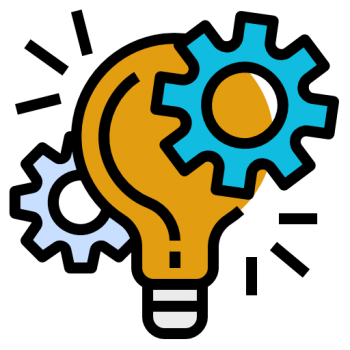Imagine: A physician is passionate about making an improvement in their department that will both benefit patients and families, and improve the clinicians’ experience of delivering care. They secure funding for their project and start to plan their approach. They initiate meetings with key stakeholders, set project goals and do much of the work to make the change themselves to avoid putting additional work on others’ shoulders. As the project progresses, however, things start to stall. Some people don’t see the value of it, others are too busy, and gradually, the physician loses their own motivation. What went wrong?
Looking at this project through a Change Management lens may help to reveal why this project did not succeed. Change Management is a structured approach to support people through organizational change. This human dimension involves building awareness of the need for a change, motivating people to engage in the change, building knowledge and capacity to work in new ways, and sustaining changes over time[1].
A good way to think about a project is as a seed. This seed could produce delicious food that is nutritious and well-adapted to the climate. However, if this seed is planted in nutrient-scarce sand, no amount of watering or sun will make it grow. The pre-conditions have not been met. Like soil, there are several ingredients for a project (the seed) which need to be met before it can succeed. The key ingredients in the preconditions or soil of change include:
- An influential leader or leaders who is actively involved in the change by communicating, engaging in meaningful dialogue about the change
- A clear vision articulated, including why the change is necessary
- An understanding of all groups who will need to be involved through planning, consultation and implementation
- A solid plan to support groups and individuals through the change transition by addressing the ADKAR model (named after the 5 pre-conditions for successful change: Awareness, Desire, Knowledge, Ability and Reinforcement) with key change activities[2]
- Early, frequent and ongoing, communication,
- A plan to involve impacted people and middle managers throughout the design, implementation and sustainment with 2-way communication mechanisms
Some questions to ask at the outset of a project include:
- Is my leader and their operational partner going to support the project in an active and visible way? Do they understand what saying “yes” means for them? What kinds of activities will you want them to be a part of?
- Is higher-level sponsorship needed for success (likely needed when a change impacts areas beyond the unit)?
- Who are all of the people who will need to change the way they work? How will we engage with them to understand their perspective on this change and support them through the transition?
- Does this project idea already have a supportive interdisciplinary consensus within my department/unit or do some people still need to be convinced of its value? Do those involved understand why this change is necessary and the risk of not changing?
- Have I thought about how I will communicate with and engage impacted people and their leaders (middle managers)?
- Have I considered the scope, timeline and costs of the project?
- How will I establish regular check-ins and feedback mechanisms with the key groups involved?
We want you and your project to succeed! Energy and efforts spent at the outset of the project to consider and address the questions above can help prevent resistance due to lack of awareness and understanding about a change. People who are involved in the change are more likely to support and adopt new ways of working. It doesn’t always need to be formally documented (although this can help to clear it up for yourself and others) and we are here to talk it through with you.
If you would like to learn more about change management, the ADKAR model, how to lead or how to navigate change, there are free learning modules available to you through your Island Health email address. Please visit the Island Health Intranet to learn more and to find these free resources.
If you would like some assistance accessing these resources, please connect with Amanda Leddy, Island Health Research Facilitator. If you are a physician with privileges at Royal Jubilee Hospital or Victoria General Hospital, please contact Rita Webb, Project Manager with the South Island MSA
[1] From Prosci ADKAR model of change management. More information can be found here: https://www.prosci.com/methodology/adkar
[2] For more information about the ADKAR model, please explore: https://www.prosci.com/methodology/adkar or consider taking the Learning Hub module on Prosci Change Management eLearning: Introduction to ADKAR, available to all Island Health employees and staff through the Learning Hub site: https://learninghub.phsa.ca/Courses/23937/prosci-change-management-elearning-introduction-to-adkar#info

